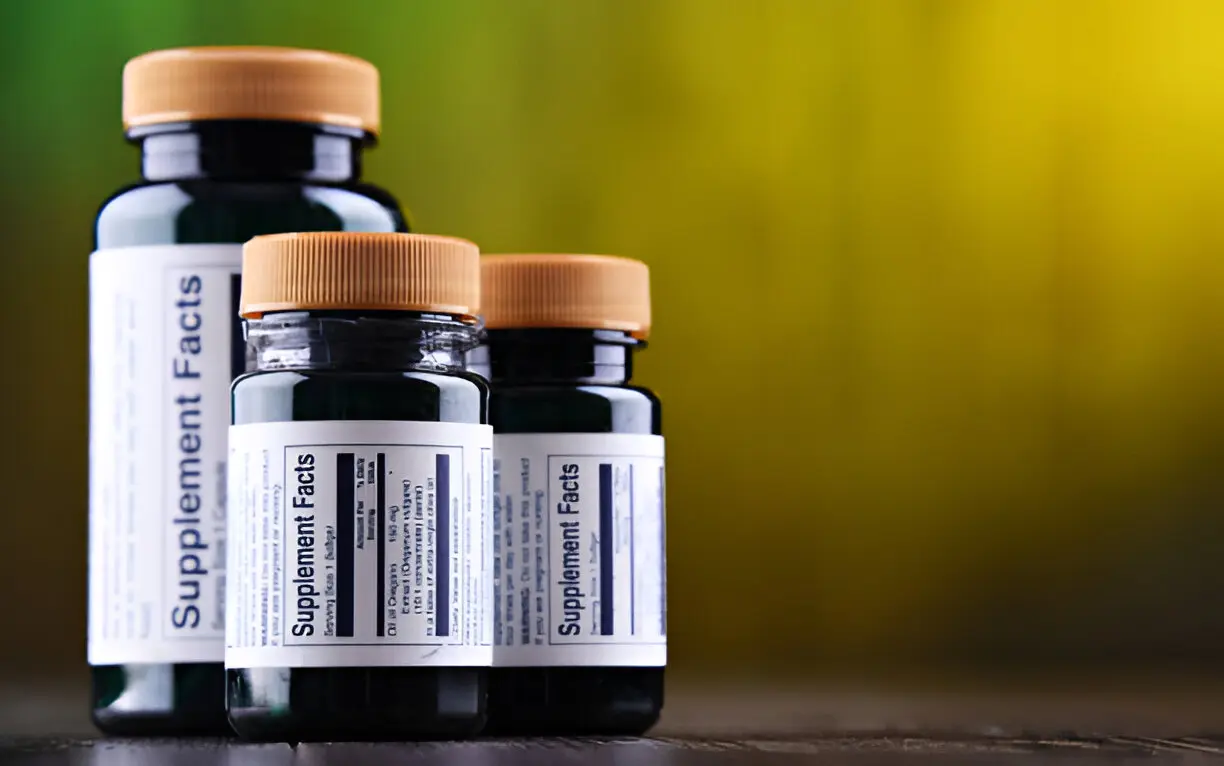How Private Label Supplements Are Shaping Wellness Choices
Rising Interest in Personalized Supplements
Consumers today are increasingly seeking unique solutions for their individual health and wellness journeys. No longer content with generic multivitamins or “one-size-fits-all” products, people are turning to brands that offer them the ability to tailor their supplements based on age, gender, lifestyle, and specific health goals. This demand has fueled a surge in private-label and white label supplements, which empower individuals and businesses to offer specialty formulations that address targeted needs such as immune balance, energy, mental clarity, or stress support. By focusing on what makes each person unique, personalization also creates a sense of connection and loyalty between the consumer and their chosen brand, fostering long-term engagement.
Private label solutions enable businesses to respond more quickly to shifting consumer demands. With streamlined manufacturing and fulfillment, brands can launch or update products rapidly, capitalizing on emerging trends or research. Rapid prototyping and smaller minimum order quantities enable more experimental or niche products to reach the shelves, allowing companies to test ideas efficiently. Those interested in growing their own wellness business can leverage white-label supplements to bring personalized products to market without incurring heavy investment or lengthy development timelines. This agility is especially valuable as new health discoveries or societal events—such as global pandemics or mental health awareness campaigns—quickly influence what consumers are looking for in supplements.
Quality and Transparency Remain Top Priorities
As shoppers become more health-literate, expectations for supplement quality have risen. Consumers want to know exactly what they’re taking, how ingredients are sourced, and what steps are in place for quality assurance. Brands that clearly outline their sourcing and manufacturing practices—such as using non-GMO ingredients, third-party lab testing, and adhering to Good Manufacturing Practices (GMP)—tend to build stronger reputations and lasting consumer trust. Transparency has shifted from being a nice-to-have to a non-negotiable standard in the wellness industry.
The scrutiny over the origins and safety of ingredients has increased dramatically. Brands that provide detailed information about ingredient sourcing, batch-level testing, and quality control offer a competitive edge in the market. Companies that invest in comprehensive documentation and accessible Certificates of Analysis (COA) are better positioned to win over skeptical or informed consumers, many of whom research products extensively before making a purchase decision. All this combined means that the supplement industry’s trajectory is guided by consumer demand for honesty, ethical sourcing, and quality assurance across every product.
Fueling Wellness With Innovative Ingredients
The ingredient landscape within the supplement industry is undergoing rapid change. Interest in plant-based and natural alternatives continues to rise, with functional mushrooms, adaptogenic herbs, probiotics, and superfood blends leading the way. Manufacturers are integrating scientifically supported ingredients—turmeric for inflammation, ashwagandha for stress, and omega-3s for brain health—into specialized blends. The demand for clean-label, vegan, and allergen-friendly options is also encouraging brands to innovate while maintaining high standards, as highlighted by major health publications.
Additionally, emerging ingredient trends extend beyond nutrition and general wellness. Some brands are developing targeted solutions for cognitive performance, sleep, digestive health, and sport recovery. As scientific research continues to uncover the benefits of lesser-known botanicals or isolated compounds, private label brands can more quickly bring those advancements to market. This translates to a consumer market with an ever-expanding array of products tailored to distinct and evolving health needs, making innovation a hallmark of the private label sector.
Why Accurate Labeling and Safety Tests Matter
Every supplement consumer deserves confidence in what they’re putting in their bodies. Meticulous labeling is vital—not just for legal compliance but for genuine consumer safety. Clear, honest labeling and published third-party test results protect both the end user and the credibility of the supplement brand. Certifications such as NSF International, USP, and Non-GMO Project verification provide additional peace of mind and set higher standards for manufacturers. Reputable brands realize this and prioritize transparency in every phase of the production process, an approach supported by organizations like the FDA.
Safety testing is more than just a regulatory requirement; it is a crucial means of ensuring product efficacy and maintaining public trust. Reports of adulteration, mislabeling, or contamination have made consumers more aware and cautious, elevating expectations for robust quality assurance. Brands that voluntarily publish the results of purity and potency tests build credibility. At the same time, consumers benefit from empowered, informed choices—helping shape an industry that prizes safety as much as innovation.
Opportunities and Trends for Entrepreneurs
With fewer barriers to entry, private label supplements are an attractive option for aspiring wellness entrepreneurs. Start-up costs are lower, minimum order quantities are reasonable, and brands can access expert formulation support. Increasing numbers of contract manufacturers now offer formulation expertise, branding packages, and fulfillment services, allowing entrepreneurs to focus on building their customer base and perfecting their marketing message.
The ability to offer custom solutions for niche audiences—ranging from fitness enthusiasts to those seeking hormone balance—means new brands can quickly carve out market share. Consumer demand for targeted solutions, transparency, and ongoing education continues to grow, making entrepreneurship in this space especially promising. By leveraging the flexibility of private label manufacturing, entrepreneurs can adapt their product offerings to shifting trends, ensuring continued relevance in a dynamic market.
Challenging Myths and Setting Realistic Expectations
Supplement marketing frequently runs ahead of the research. Savvy brands and consumers appreciate the importance of evidence-based claims—focusing on incremental, sustainable well-being rather than miracle results. Education and trust are central: reading product labels, reviewing ingredient studies, and consulting healthcare professionals are all part of making empowered choices.
The best private label brands encourage informed use and never overpromise on their products. This balanced perspective helps manage expectations and creates greater satisfaction among consumers. When brands openly discuss benefits, limitations, and responsible use, they support a culture of transparency and realistic goal-setting—essential for cultivating long-term trust in wellness products.
How Private Labeling Balances Cost and Customization
Private label supplements offer more than just low prices—they provide flexibility. By working directly with manufacturers and selecting only the essential ingredients, brands can reduce costs without compromising quality. Customization in packaging, flavor, delivery system, and formulation not only builds brand loyalty but also aligns products with evolving consumer preferences.
The combination of accessible priced products and thoughtful customization has helped democratize health supplements for a wider range of businesses and customers. Private label brands can quickly adapt packaging, serving sizes, or even branding strategies to capitalize on new opportunities. This flexible approach means that wellness entrepreneurs are not forced to choose between affordability and brand uniqueness—they can achieve both by working with the right manufacturing and development partners.
Predictions for the Next Decade of Private Label Supplements
The private label segment is poised for even greater transformation. Digitally powered personalization, broader ingredient innovation, and stricter global regulatory frameworks are all on the horizon. Consumers will have access to advanced supplement matching tools and AI-assisted health recommendations, while increased attention to sustainability may shape which brands lead the industry.
Expect to see stronger collaboration between health professionals, researchers, and supplement manufacturers—ensuring safe, effective solutions tailored to consumer well-being over the next decade. Transparency, verifiable results, and real-time adaptation to scientific progress will likely become defining characteristics of successful supplement brands. This evolving landscape bodes well for both new entrants and established players who prioritize innovation, quality, and trusted partnerships.
Final Thoughts
Private label supplements are redefining the wellness market by offering consumers more personalized, affordable, and accessible options. As demand for health-conscious products continues to grow, these supplements empower both brands and individuals to embrace choices that align with evolving lifestyles and values. With innovation and trust at the forefront, private label solutions are set to remain a driving force in shaping how people approach wellness.
Also Read

